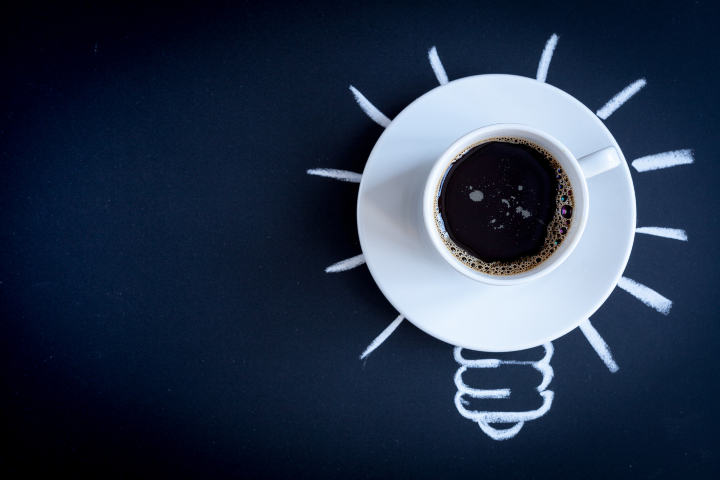When I was a kid in the 1970s, ADHD wasn’t something girls were supposed to have. Boys who bounced off the walls might get flagged, sometimes even medicated. Girls who talked too much, daydreamed too long, or forgot their homework again? We were just “chatty,” “scattered,” or “not living up to our potential.”

Like many kids with ADHD, I also carried the “gifted” label. That word opened some doors—special classes, extra enrichment—but it also hid a lot of my struggles. If you’re “gifted,” you’re supposed to rise above distractions, nail deadlines, and live up to your promise. Struggling wasn’t read as ADHD; it was read as laziness, or worse, as willful disobedience.
So I grew up undiagnosed, masking like it was a survival skill: organizing in frantic bursts, apologizing when I forgot things, working twice as hard just to keep pace—and then discovering that sneaking sips of Mom’s coffee wasn’t just curiosity. It was chemistry. While other kids were chugging soda, I was sipping mugs of that wondrous, strong brew. Nobody knew then that caffeine can calm an ADHD brain, smoothing the static just enough to focus, but I knew that coffee made mornings a little more manageable and my thoughts a little less chaotic.
By adulthood, “push through it” had become muscle memory. But the truth is: you can only push through for so long before the pushing itself becomes the problem.
I didn’t realize—didn’t admit—that my so-called “creative personality” was really a differently wired brain until I was well into my 40s. It was easier to tell myself I was just quirky, or eccentric, or “the artsy one.” Easier, but also lonelier, because it meant I kept blaming myself for the struggles instead of seeing them as part of a bigger pattern.
That’s where self-care comes in.
Most mainstream advice doesn’t quite fit when your brain runs on a different operating system. “Just make a list.” (I make ten, then lose them all.) “Light a candle and breathe.” (Lovely, until I leave the room and create a fire hazard.) “Get more sleep.” (Sure, but my brain loves a midnight idea binge.) “Drink more water.” (Also yes, but I’ll forget the glass I poured an hour ago and find it later, untouched.)
So what does work? Lowering the bar until it’s actually possible to step over it. Instead of “declutter the house,” it’s “pick up one mug.” Instead of “practice mindfulness,” it’s “notice the cool side of the pillow.” Instead of “be consistent,” it’s “try again tomorrow.”
Another key shift for me has been redefining the words I used to measure myself by—especially productive. Sometimes being productive looks like writing six short stories in a single day. Sometimes it looks like remembering to eat breakfast and drink a glass of water. Both count. Both matter. Productivity doesn’t have to mean relentless output; it can mean caring for your body and brain so you can show up at all.
Self-care with ADHD is scaffolding—timers, playlists, weighted blankets—and permission: to hyper-focus when the energy hits, to rest when it doesn’t, to forgive yourself when neither feels possible. And yes, sometimes it’s still a strong cup of coffee, not as a crutch, but as an ally. Honestly? Coffee might actually be my higher power.
The trick isn’t trying to become someone else’s definition of “together.” It’s designing a life around the brain you actually have. Build in buffers. Celebrate the tiny wins. Laugh at the messes.
Because self-care isn’t about perfection. It’s about kindness. And if no one ever told you back in the 1970s—or even yesterday—that you’re allowed to be kind to yourself? I’ll say it now: you are.
Five Ways to Support Your ADHD Self-Care
- Redefine “productive.” Productivity doesn’t have to mean endless output. Let “productive” include rest, meals, hydration, and tiny wins alongside creative bursts.
- Use caffeine intentionally. Coffee and tea can bring calm and focus, and yes, caffeinated soda can work too—though the sugar may undo the benefit by spiking (and then crashing) your energy.
- Lower the bar. Break tasks into the smallest possible steps. Success is built on one dish washed, one email answered, one corner tidied.
- Build your scaffolding. Timers, checklists, playlists, sticky notes—whatever helps you stay anchored. These aren’t weaknesses; they’re structures that support success.
- Practice forgiveness often. You will forget things. You will start over—again. Make forgiveness part of the plan, not the exception.
Those are the strategies that help me, but every ADHD brain is unique. What self-care practices make your days easier, calmer, or kinder? I’d love to hear them.

Your words really resonate. I appreciate how you’ve reframed self-care for ADHD as kindness and scaffolding rather than perfection. Lowering the bar and celebrating the small wins feels like such a compassionate, sustainable way forward. Thank you for naming this so clearly.